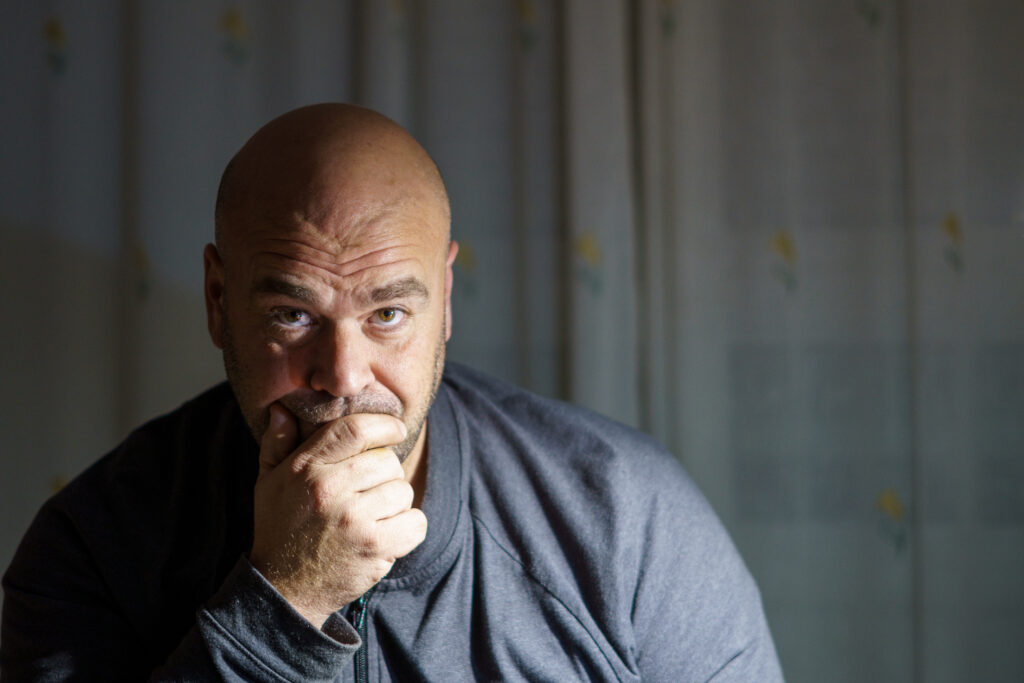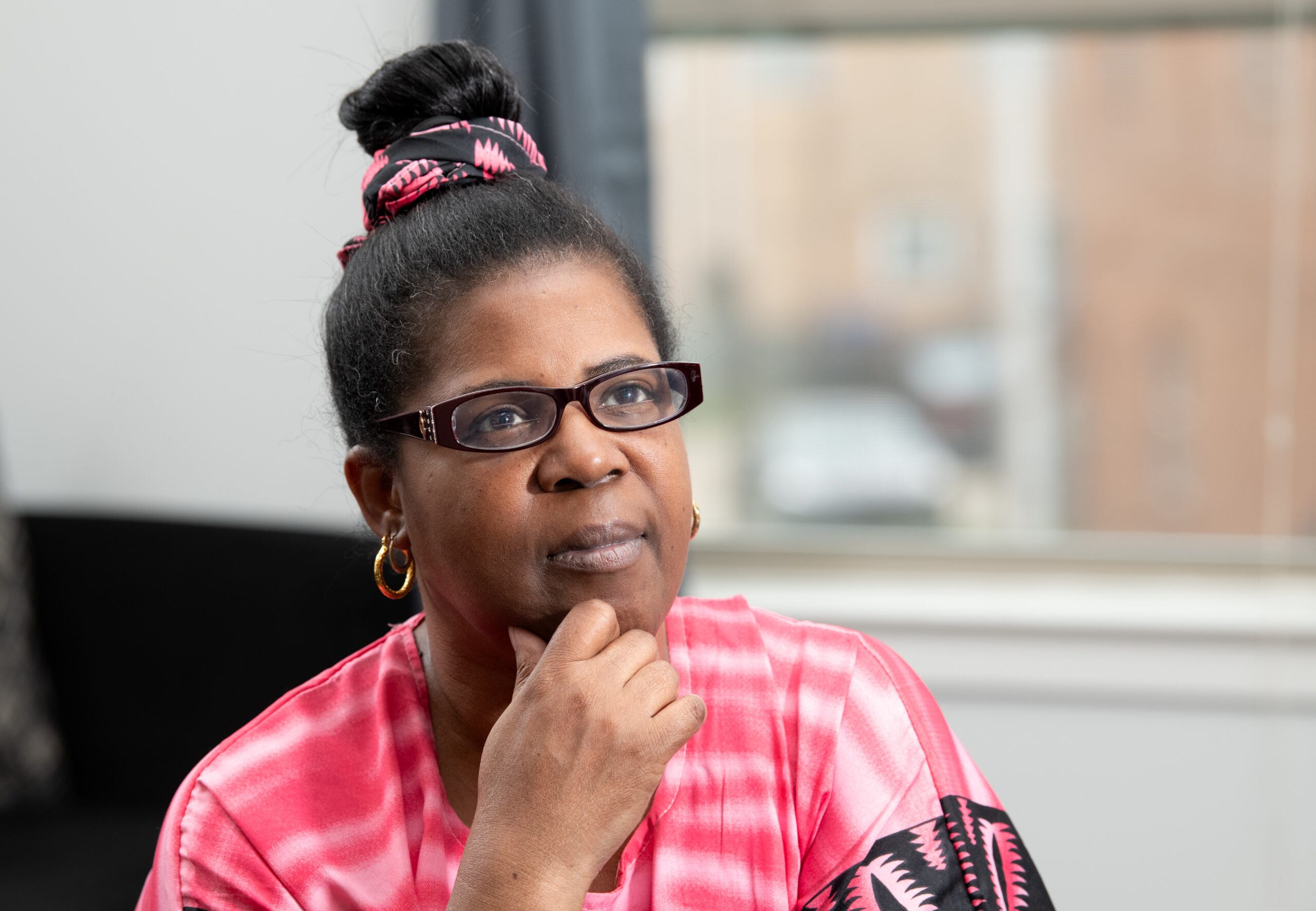
MR. K.´S PATH TOWARDS STABILITY AND WELLNESS

Mr. K. worked as a behavioral health counselor for more than a decade, helping individuals struggling with mental health and substance abuse issues. Last July, his life took a devastating turn when he suffered a massive heart attack. He could no longer work and was placed on the waiting list for a heart transplant.
Without any income, Mr. K. was unable to pay rent and buy food. He often had to ration his medications, forcing him to endure excruciating pain. Though he applied for disability income assistance, Mr. K. waited for nearly a year for a decision.
During that time, his landlord tried to evict him multiple times and refused to accept the rental assistance for which Mr. K. was eligible. Mr. K.’s life-saving heart medication required refrigeration, so the prospect of homelessness became a life-or-death situation for him.
Fortunately, through its Medical-Legal Partnership with Kaiser Permanente, Mr. K. was referred to Maryland Legal Aid. MLA Staff Attorney Cory Warren navigated multiple legal battles with Mr. K., including winning three separate failure-to-pay-rent cases over the course of the year.
Mr. Warren got the landlord to accept rental assistance payments for which Mr. K. was eligible. He also helped Mr. K. execute a power of attorney and an advanced directive to give him peace of mind. When clients like Mr. K. face such high-stakes situations, they should not face it alone. Marylanders deserve the holistic representation and tenacious advocacy MLA provides its clients every single day.
“He went beyond what I expected, and if it were not for his efforts, I could have very well been trying to survive this past winter homeless. He shielded me from every effort to force an eviction and I truly believe he helped save me. I would not have been able to fight this alone.”
A LEGAL JOURNEY FOR A CHILD’S SAFETY

While at the Prince George’s County Courthouse, Morgan McManus, a domestic violence and family law lawyer for Maryland Legal Aid, overheard a woman in distress discussing her order of protection. McManus asked the woman, Mary Jones,* “How can I help?”
Her children, Jones said, were being abused by their father, who also refused to address the mental health needs of one of the children. Jones said she had been battling with the father for nine months. Angered by her request for a protective order, the father responded by asking the court to change the agreement and let him have sole custody of one child. Jones said she felt harassed and exhausted by his attempts to retaliate, continuous disappearances and his lack of follow-through.
McManus immediately advised her to start the intake process with MLA. McManus promised to follow up with her the next day if she did.
Knowing that the custody modification requested by the father was not in either child’s best interests, MLA agreed to represent Ms. Jones. McManus went into action and filed a countermotion to appoint a child privilege attorney, citing the father’s abusive behavior
After McManus joined the case, the father neither participated in the court proceedings nor cooperated with the privilege attorney. Seeing that, as well as the evidence of abuse, the judge gave Jones full custody of both children along with the discretion to determine if and when the children would have access to their father.
The father made a last-ditch effort before the order took effect to change custody and suspend his child support payments. However, the judge ruled in favor of McManus’ motions to dismiss both possibilities, awarding Jones full custody of both children and restoring her peace of mind regarding her children’s safety.
ENDURANCE AND JUSTICE

In February 2019, Fiona Johnson,* who has multiple sclerosis and is unable to work because of the degenerative disease, came to Maryland Legal Aid for help with her divorce.
She had been married for almost 20 years and had endured years of physical and verbal abuse from her husband. But when Johnson discovered her husband’s infidelities, he told his wife to move out of the couple’s home, which they owned jointly, to allow his girlfriend and her family to move in.
Johnson’s only support was her monthly Social SecurityAny government system that provides financial assistance to people with low or no income. disability income of $1,100. Yet, her husband forced her out without any more financial considerations. Johnson could afford only a single room for $650 monthly in a small home where four people shared one bathroom.
Since she could no longer work, Johnson could not afford an attorney, but she wanted to live independently, so she turned to MLA and was helped by the persistence and tenacity of Chief Attorney Jeff Kaplan.
It was a long and drawn-out case, not only because of the COVID-19 pandemic but also because the husband refused to comply with the court decisions.
Finally, after a yearlong delay, Johnson’s husband was ordered to either pay Johnson $50,000 for her share of the marital home or sell the house and give Johnson 85% of the proceeds.
When the deadline came, Johnson’s husband refused to move and did not refinance the mortgage to pay the $50,000, despite having the financial ability to do so.
Kaplan hired a realtor to sell the house, but the husband repeatedly stalled the process. Stubbornly, her ex-husband also abdicated all homeowner responsibilities, refusing to pay water bills, taxes and environmental violations. The house deteriorated, and a year later, Johnson received only $30,000 when it was sold.
Since she could no longer work, Johnson could not afford an attorney, but she wanted to live independently, so she turned to MLA and was helped by the persistence and tenacity of Chief Attorney Jeff Kaplan.
It was a long and drawn-out case, not only because of the COVID-19 pandemic but also because the husband refused to comply with the court decisions. Kaplan and MLA’s new staff attorney, Michael Braunstein, thought justice had not been served, so they reopened the case and argued that the ex-husband should be held responsible for his actions.
Finally, after three years, Johnson was recently awarded an additional judgment of $28,000 against her ex-husband.
PRESERVING HOME AND HOPE: CATHERYN’S STORY

In the winter of 2023, Catheryn sought help from Maryland Legal Aid to save her home in Annapolis. As a disabled veteran who used a VA loan to buy her house, she fell behind on mortgage payments due to issues with Navy Federal Credit Union and ongoing health problems. Despite the looming threat of foreclosure, Catheryn approached MLA before the mediation deadline expired.
Supervising Attorney William “Bill” Steinwedel took swift action, guiding Catheryn through the Maryland Homeowners Assistance Fund (HAF) application process. With Steinwedel’s help, Catheryn secured $11,978.22 in HAF funds, enough to cover her mortgage arrears. With financial support and MLA’s backing, Catheryn presented a compelling case to the court, leading to the dismissal of the foreclosure case and withdrawal of her mediation request.
The collaboration between Catheryn and Attorney Steinwedel not only saved her home but also brought hope and stability to her life.
Steinwedel’s dedication recognized Catheryn’s service as a disabled veteran, prioritizing her well-being. With foreclosure averted, Catheryn could focus on rebuilding her life, supported by MLA and the HAF funds, paving the way for a more secure future.
